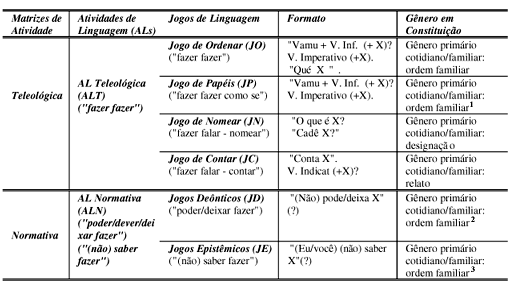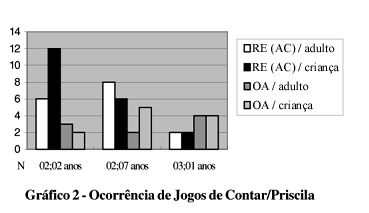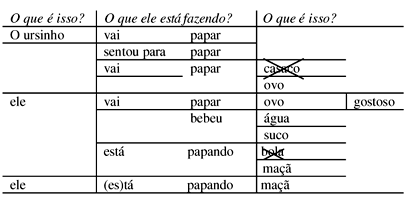This paper is based on a viewpoint that takes the social construction of action and language as being essentially determined by the social history of the interactions and the language-patterned activities in which subjects under constitution are, and were, immersed. Data analysis will support that different patterns of language activities (Schneuwly, 1988), linked to the building of discourse genres, will have various effects on the constitution of action forms and on the ways of speaking about them (Bronckart, 1997). Dialogic family genres (Bakhtin, 1979) would be responsible for both: the constitution of action forms (teleological action (Bronckart, 1997)), and their normalisation (normative action). At other moments of language constitution, different narrative genres - reports and fairy tales, in special - will unfold. Due to their relatively early constitution by the children and the fact that they are focused on action (the action on-course, the experienced action and the (re-)created actions) in different manners - conjunctive and disjunctive referentiality -, they should play an important role in the social construction of discourses about the action and, therefore, in its awareness.
Family Interaction; Sociocultural Approach; Discoursive Genres






